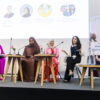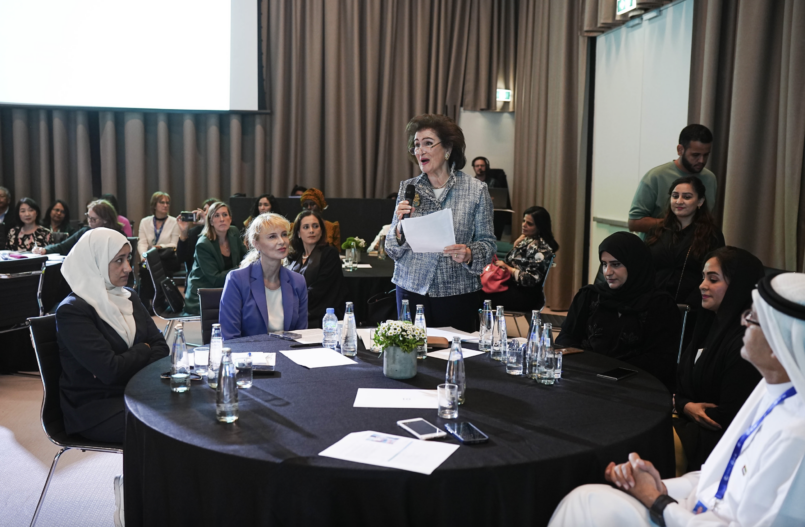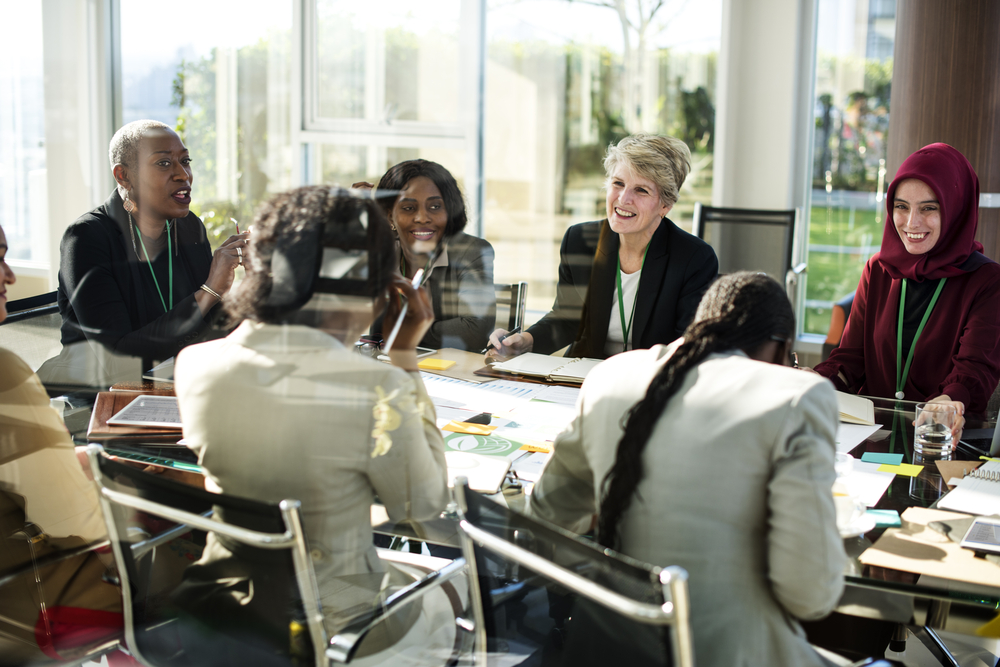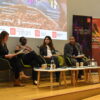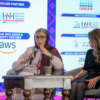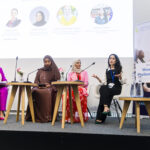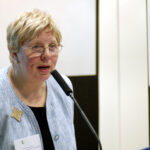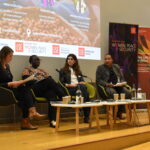It was such a pleasure to moderate a key panel at the COP28 Arab Women Leaders’ Summit on Monday 04 December 2023, joining outstanding business leaders, researchers, activists, policymakers and representatives from civil society organisations, to discuss the intersectionality of gender and climate change. The Summit was designed to explore the critical relationship between gender equality and climate action, as by addressing this intersection, the Summit aimed to identify challenges, share best practices, and develop strategies to promote gender equality in climate change mitigation, adaptation, and resilience efforts.
I convey my warm thanks and appreciation to Dr Lamya Fawwaz, Executive Director of WiSER, for her outstanding leadership of this event and her kind invitation for me to chair the roundtable on climate-related health and human security risks that emerge from climate change. On my panel, I was proud to welcome:
Salman Abdalla, Executive Vice President, ESG & Sustainability, Emirates Global Aluminum
Muna Alhammadi, Head of Partnerships, Nabd Development and Evolution Organization (NDEO)
HE Dr Maryam Matar, Chairperson, Emirates Genetic Diseases Association
Anna Petrachkova, Director Health & Safety, Emirates Steel Arkan
Alya Sultan AlZaabi, HSE Senior Engineer (Corporate & Sector Environment), Department of Energy
Shaista Asif, Co-Founder & Group COO, PureHealth Group
All of our valued participants worked closely together to develop actionable recommendations and initiatives that can integrate gender equality into climate change agendas, fostering a more inclusive, equitable, and resilient future for all, including:
International Policy Coordination
Effective action requires coordinated international policies. This includes agreements on emissions reductions, climate finance, and technology transfer. Instruments like the Paris Agreement provide a framework, but need to be strengthened and more rigorously implemented, with specific attention to the unique challenges faced by the MENA region.
Financial Investment and Support
Developing countries, including many in the MENA region, require financial support to adapt to climate change and mitigate its effects. This includes funding for infrastructure development, renewable energy projects, and climate-resilient agriculture. International financial institutions and developed countries have a crucial role in providing this support.
Technology and Information Sharing
Sharing technology and knowledge between countries can significantly aid in adapting to climate change. This can include technologies for renewable energy, water conservation, and climate-resilient agriculture. Information sharing also plays a key role in preparing for and responding to climate-related disasters.
Inclusive Multi-Stakeholder Dialogue
It is vital to include a wide range of stakeholders in the conversation. This means not just governments, but also local communities, indigenous groups, private sector players, and NGOs. Each group has unique insights and plays a different role in both the problems and solutions surrounding climate change.
Capacity Building and Education
Enhancing the capabilities of local governments and communities to deal with climate change is crucial. This includes education and training in climate science, adaptation strategies, and disaster risk reduction. Schools and universities also play a role in educating the next generation about climate issues.
Health System Strengthening and Preparedness
Strengthening health systems in the MENA region to better handle the impacts of climate change is essential. This includes improving infrastructure, training health care workers in climate-related health issues, and developing early warning systems for climate-sensitive diseases.
Research and Development
Investing in research to better understand the specific impacts of climate change in the MENA region and globally is vital. This research can inform more effective policies and adaptation strategies.
Promoting Sustainable Practices
Encouraging sustainable practices in agriculture, industry, and urban development can mitigate the effects of climate change. This includes adopting renewable energy, conserving water, and implementing green building standards.
Conflict Resolution and Peacebuilding
In areas where climate change exacerbates conflict, as it can in the MENA region, integrating peacebuilding and conflict resolution strategies into climate adaptation efforts is essential. This can help prevent resource conflicts and ensure more stable, effective responses to climate challenges.
Adaptation and Resilience Building
Focusing on adaptation measures, particularly in vulnerable communities, is critical. This includes developing infrastructure that can withstand extreme weather events and changing agricultural practices to suit new climatic conditions.
The Board of AIWF extends its congratulations to our partners at the Masdar WiSER Initiative and extend all our congratulations to Dr Lamya Fawwaz and her excellent team at WiSER on the impeccable planning of this important Summit as part of the COP28 programme.
Dr Haifa Al Kaylani
President & Founder
Arab International Women’s Forum

